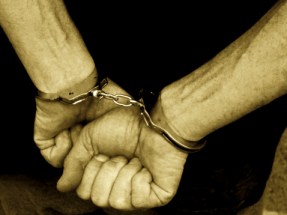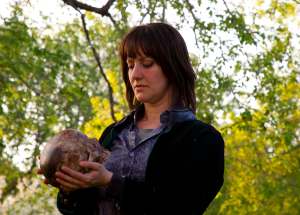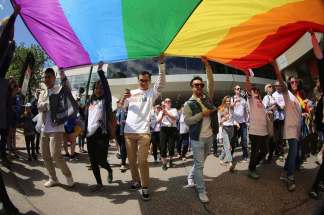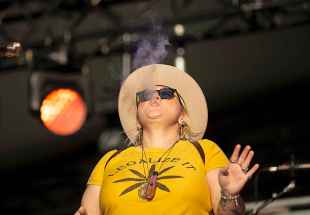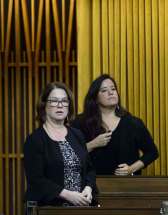Canada’s relationship with Indigenous peoples not optional
Read this article for free:
or
Already have an account? Log in here »
To continue reading, please subscribe:
Monthly Digital Subscription
$0 for the first 4 weeks*
- Enjoy unlimited reading on winnipegfreepress.com
- Read the E-Edition, our digital replica newspaper
- Access News Break, our award-winning app
- Play interactive puzzles
*No charge for 4 weeks then price increases to the regular rate of $19.00 plus GST every four weeks. Offer available to new and qualified returning subscribers only. Cancel any time.
Monthly Digital Subscription
$4.75/week*
- Enjoy unlimited reading on winnipegfreepress.com
- Read the E-Edition, our digital replica newspaper
- Access News Break, our award-winning app
- Play interactive puzzles
*Billed as $19 plus GST every four weeks. Cancel any time.
To continue reading, please subscribe:
Add Free Press access to your Brandon Sun subscription for only an additional
$1 for the first 4 weeks*
*Your next subscription payment will increase by $1.00 and you will be charged $16.99 plus GST for four weeks. After four weeks, your payment will increase to $23.99 plus GST every four weeks.
Read unlimited articles for free today:
or
Already have an account? Log in here »
Hey there, time traveller!
This article was published 31/05/2019 (2387 days ago), so information in it may no longer be current.
Ontario announced last week that Indigenous studies courses in high schools throughout the province would be “optional.”
This was a reversal of a 2016 commitment by the former provincial Liberal government, which promised all students from grades 9 to 12 would learn about First Nations, Inuit, and Métis cultures, communities, and contributions to Canada.
This is not the first time Premier Doug Ford’s Conservative government reneged on a promise to incorporate Indigenous content in schools. In July 2018, it cancelled curriculum revision sessions designed to incorporate residential schools and the Truth and Reconciliation Commission of Canada.
The message here is simple: Indigenous peoples are optional.
The problem is, we’re not.
Look at your driver’s licence. Every single person carries Indigenous names that make up your identity, like “Winnipeg, “Manitoba” or “Canada.”
Look at the land you live on, the water you drink, and the resources this country’s economy thrives upon. Who helped make this happen?
Indigenous contributions are fundamentally and critically at the centre of Canadian life. Every decision, determination, and policy and practice must embody this principle.
The issue is too many Canadian leaders want to pretend this isn’t true.
In Alberta, the newly installed United Conservative Party government has ceased making official treaty and territorial acknowledgements before opening government meetings and announcements. Doing so is now a choice, Indigenous Relations Minister Rick Wilson said.
In Saskatchewan, the province is entrenched in several court battles over treaty rights, arguing it can tell First Nations when and where they can hunt and fish. The government has gone so far as to arm conservation officers with military-grade rifles to enforce its belief.
In Manitoba, the provincial government cancelled last year — without consultation or discussion — two multimillion-dollar agreements with the Manitoba Metis Federation to secure its support for Manitoba Hydro projects. Premier Brian Pallister called one of the agreements “hush money” paid to a “special-interest group.”
Relationships with Indigenous peoples are almost always an option for Canada — and one seen as political, inconvenient, or a “problem.”
Why does virtually every single resource project in Canada involve First Nations-held lands and not, say, a town or city? Why are First Nations territories always where Canada chooses to run its pipelines?
Even when politicians try to live up to Canada’s responsibilities to First Nations things get mired in options and choices. Take, for example, the litany of bills still in legislative limbo, laws that would change the lives of Indigenous communities and fulfill Canada’s relational responsibilities.
These bills, many proposed by Prime Minister Trudeau and his Liberal government, are now threatened as the next federal election looms, and most will likely run out of time to be passed.
Of the remaining dozens being debated in Parliament, approximately 16 would have direct impact on First Nations, Inuit and Métis peoples. These include Bills C-91 and C-433 (Indigenous Languages), C-92 (Indigenous Child Welfare), C-391 (Repatriation of Indigenous Cultural Property).
This is not to mention the litany of environmental bills that would, by default, protect Indigenous ways of life.
Even the recently proposed Bill C-99, which proposes to change the citizenship oath to include a commitment for new Canadians to respect Indigenous and treaty rights, is likely not going to make it through Parliament.
The most egregious example of Canadian leaders choosing to make Indigenous peoples pawns is the case of Bill C-262.
Introduced as a private member’s bill by NDP MP Romeo Saganash, C-262 would require the government to consider whether federal laws are consistent with the United Nations Declaration on the Rights of Indigenous Peoples.
Passed by the UN in 2007, it ensures governments “constitute the minimum standards for the survival, dignity and well-being of the Indigenous peoples of the world.” It protects the rights of Indigenous peoples to practice their cultures, customs, languages, and to develop and strengthen their economies and social and political institutions.
The impact of C-262 would be a game-changer in Canada. It would require the Indian Act be amended immediately, Indigenous governments be recognized, and adequate living conditions be ensured for Indigenous peoples everywhere.
It would not only bring equity between Indigenous and non-Indigenous peoples in this country but it would bind Canada to a principle that Indigenous peoples matter.
But, in case you haven’t noticed, Indigenous rights are a choice for Canada to make — even if the constitution says otherwise.
While C-262 was approved more then a year ago by the majority of elected MPs in the House of Commons, a collection of unelected senators have spent weeks using tactics to delay the bill in the upper house.
In a letter to the leader of the senators co-ordinating the effort (Conservative Senate leader Larry Smith), Crown-Indigenous Relations Minister Carolyn Bennett and Justice Minister David Lametti asked his caucus to “cease its procedural delay tactics.”
Speaking on the delay, Saganash added: “I find it troubling that, in 2019, in this place called Canada, that there are still people in our institutions that oppose the human rights of Indigenous peoples.”
It’s understandable — if some people matter and others are just an option.
niigaan.sinclair@freepress.mb.ca

Niigaan Sinclair is Anishinaabe and is a columnist at the Winnipeg Free Press.
Our newsroom depends on a growing audience of readers to power our journalism. If you are not a paid reader, please consider becoming a subscriber.
Our newsroom depends on its audience of readers to power our journalism. Thank you for your support.


